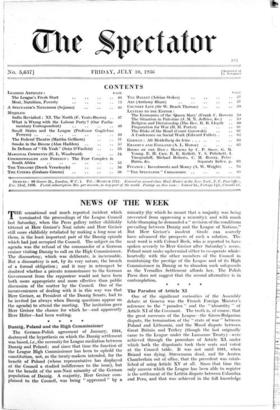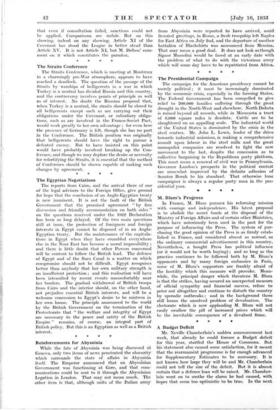The Paradox of Article XI One of the significant curiosities
of the Assembly debate at Geneva was the French Foreign Minister's reference to the " paradox " and the "'absurdity " of Article XI of the Covenant. The truth is, of course, that the great successes of the League—the Greco-Bulgarian dispute, the termination of the " state of war " between Poland and Lithuania, and the Mosul dispute between Great Britain and Turkey (though the last originally came to the League under the Lausanne Treaty)—were achieved through the procedure of Article XI, under which both the disputants took their seats and voted at the Council table. It was not until 1981, when Briand was dying, Stresemann dead, and Sir Austen Chamberlain out of office, that the precedent was estab- lished of using Article XV at all. Since that time the only success which the League has been able to register is the settlement of the Letitia dispute between Columbia and Peru, and that was achieved in the full knowledge that even if consultation failed, sanctions could not be applied. Comparisons are unfair.' But on this showing, indeed on any showing, Article XI of the Covenant has stood the League in better stead than Article XV. It is not Article XI, but M. Delbos' com- ment on it which constitutes the paradox.











































